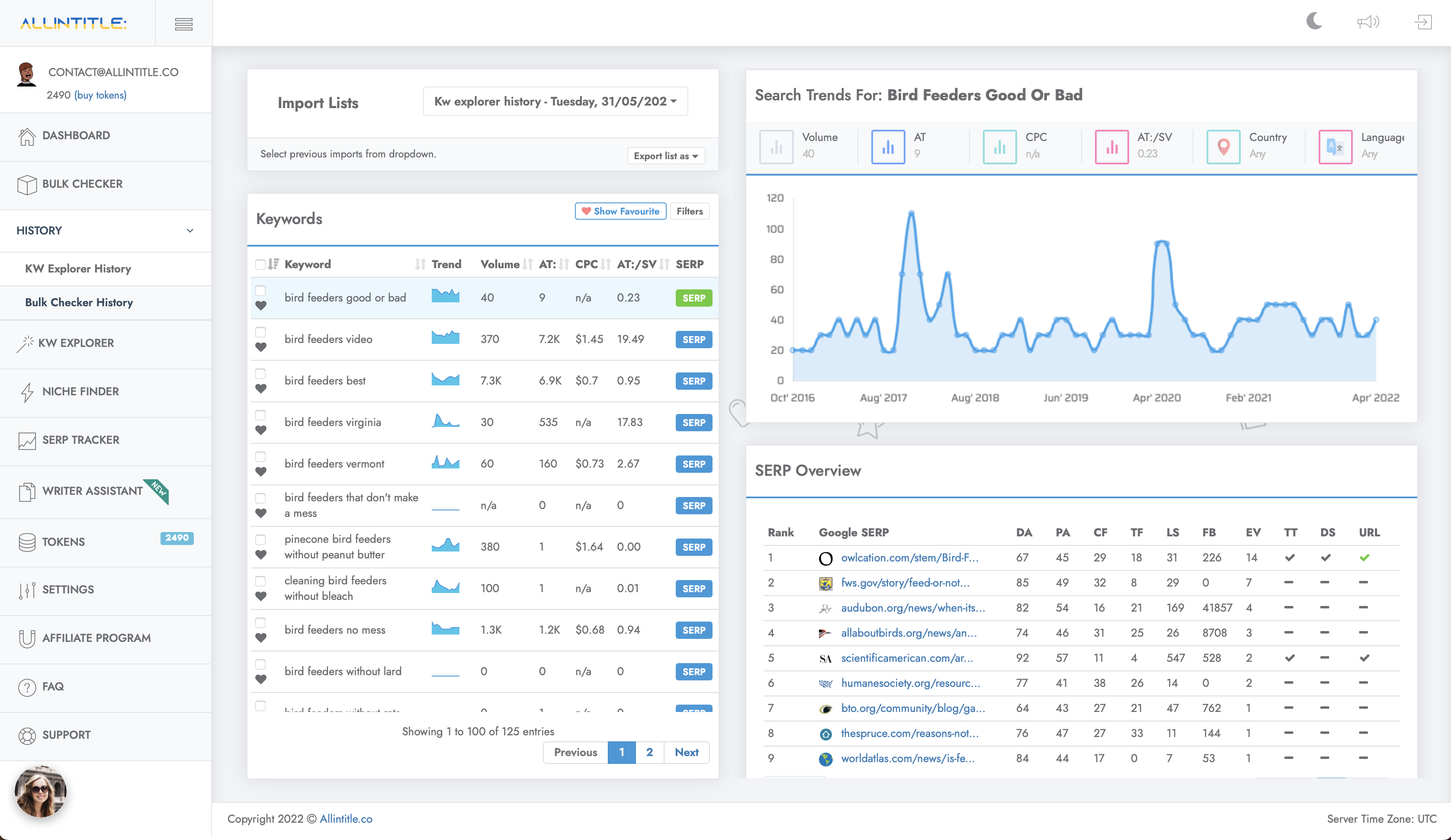-
Nexunom
Marketing firm providing different services and products.
-
Allintitle
Premium keyword research tool and long-tail keywords finder.
-
Review Tool
Review management tool used by local businesses to get more reviews.
-
Tavata
Two-way text-based website chat widget with Pay-Per-Text payment structure.
Keywords

What are keywords? They are the words and phrases that can be found in your content that make it possible for visitors to find your site when they look via a search engine. They are essential to SEO. In order for your keywords to guide users to your site, you have to know what people are searching for when they are searching for goods or services like yours. For instance, if you are an orthodontist, you want to rank well for the word “braces” - but, you want to be sure you are only ranking for orthodontic braces, and not knee braces or other types of braces.
Creating a list of keywords is one of the first steps in implementing an SEO plan. Your keywords need to be targeted towards your audience. What you may use to describe a product or service may be different than what the average user is searching for. That means that in order to drive traffic to your site, you have to know what the searcher is going to search for. To ensure you have the right keywords, it is important to do your research.
There are different types of keywords you may want to use in your content to drive traffic to your site. Broader keywords are usually called head keywords, while long-tail keywords refer to a combination of terms, which may often be more effective.
Head keywords often have the most competition because people assume since they have a high search volume, it will be easier to be found that way. But, that isn’t always the right way to think. First of all, you may be pitting yourself up against stiff competition. If you are a local bakery who specializes in custom cakes, you may not want to simply use the term “cake” or you may find yourself competing against national companies such as Duncan Hines or Betty Crocker.
Likewise, a singular term may be too broad. If you are a vet, you may not want to use the singular term “cat” for your clinic. People searching using the term cat may just be looking for funny cat videos, or may be researching breeds of cats.
Using long tail keywords allows you to pinpoint what people are searching with a clear intent. You can use the term “affordable vet Chicago” or “best vet for puppy Omaha.” Long tail keywords may have less competition, but may help you bring the potential customers you need to your site.
There are many keyword research tools to help you determine if the keywords you think are right will actually help drive traffic to your site. But, you can start by doing a bit of research yourself.
First, think about the keywords you may want to use, and then think about their relevancy to your site. If a searcher uses that keyword in a search and your website comes up, will the user be happy with the information they find? Will the keyword help convert a visitor into a customer?
It can also be helpful to go right to Google and type in the keywords you want to use. Then, you can analyze what comes up for those keywords. Not only can you discover your competition, you can also see how you might be able to size up or if it may be too hard to rank for that term.
When searching, look for ads. If you find a lot of ads associated with that keyword, it may be an indication that it is a high volume keyword. So, if your site doesn’t rank well for that word, you can look into purchasing ads to see if that keyword results in conversions for you. You can then use your analytics data to determine the value of that keyword.
When it comes to using your keywords in your content, it is important to remember that these words should appear naturally. Previously, keyword density was important because it was the only way Google could determine if a page was relevant to the keyword being searched for. But as Google’s algorithms have gotten more sophisticated, the use of keywords must, also. Keyword stuffing may have worked for a long time, but it won’t anymore.
Latent Semantic Indexing (LSI) keywords are keywords that are generally related to your primary keyword. Google researches user search patterns and behavior and can then determine how one keyword search is related to another. If you back up your targeted keyword with the LSI keywords it is related to, you can improve your chance of ranking better. Curious how you can determine what LSI keywords might work for you? Type in a Google search using your keyword, and then scroll to the bottom of the SERP. You’ll see a section that says “searches related to” and then you can get an idea of what other keywords or phrases users type in.



